研究紹介
1. ワクチン
種々のワクチンベクターを用い、新規ワクチンの開発を行っている。
1. 経鼻ワクチン
ヒトに気道感染を示すヒトパラインフルエンザ2型ウイルス (hPIV2) を用いて、安全性の高い呼吸器粘膜を標的とする経鼻ワクチンを検討している。現在、結核菌やエイズウイルス等の遺伝子を組み込んだものを作製している。
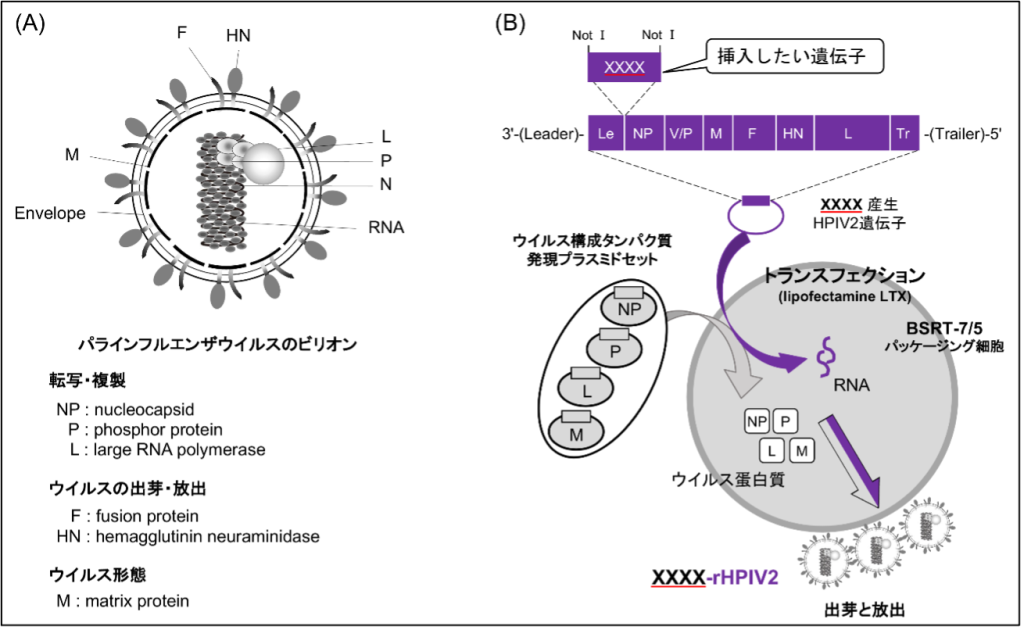
2. 組換えBCGワクチン
結核はCOVID-19パンデミック前の2019年まで、単一感染症による死亡原因の第1位でした。唯一認可されている結核ワクチンBCGは、約6か月齢で接種を受けることになっており、小児において結核性髄膜炎ならびに粟粒結核を約80%防御すると考えられています。しかし、BCGワクチンは弱毒化生ワクチンであるため、免疫力が低下している人々、すなわちHIV陽性患者や免疫抑制治療を受けている人々への接種が禁じられています。そのため、世界中で既存のBCGワクチンよりも結核菌感染に対する防御効果が高く、副反応のリスクが低いBCGワクチンの開発が行われてきたが実現化に至っていません。
Suppressor of cytokine signaling 1 (SOCS1) は免疫担当細胞におけるJAK/STATシグナルを負に制御する分子です。SOCS1の活性部位に変異を持つ組換えBCG-SOCS1DNワクチンを作製し、免疫不全マウスモデル(RAG1ノックアウトマウス)へ接種しても病原性を示しませんでした[Soma, S. et al., Infect. Immun., 86, e00376-18, 2018]。また、このワクチンを野生型マウスへ投与すると、既存BCG(BCG Tokyo株)以上の結核防御効果を示しました[Mizuno, S., et al., J. Immunol., 203, pp188-197, 2019]。カニクイザルを用いた検討を行ったところ、健常体において組換えBCG-SOCS1DNワクチンはBCG Tokyo株と同程度の結核防御効果を示しました。また病原性についても健常体では認められず、新規ワクチンとしての有効性が期待されています(投稿準備中)。
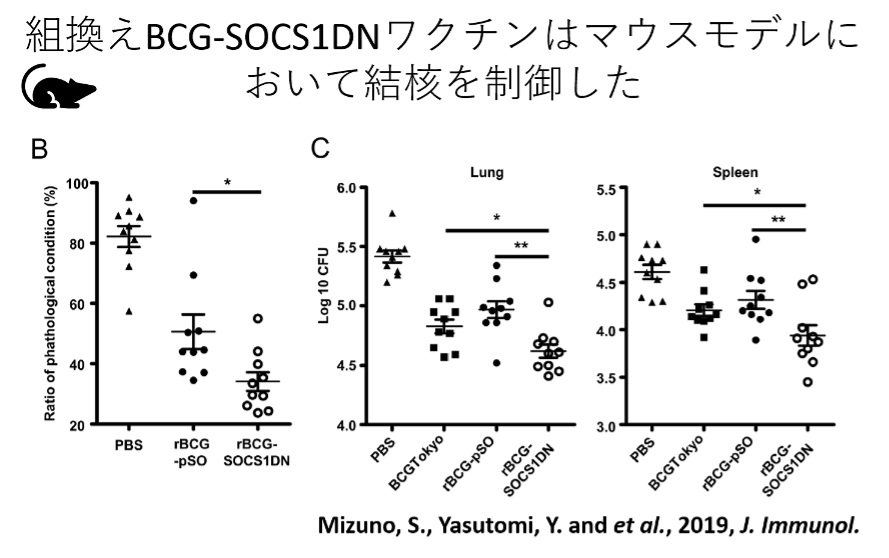
アジュバント分子Ag85B発現弱毒エイズウイルスワクチン
Nef遺伝子欠損弱毒エイズウイルスにアジュバント分子Ag85Bを組み込んだアジュバント分子組み込み弱毒エイズウイルスを構築し、このウイルスのワクチンとしての免疫応答および感染防御効果についてカニクイザルを用いて検討している。
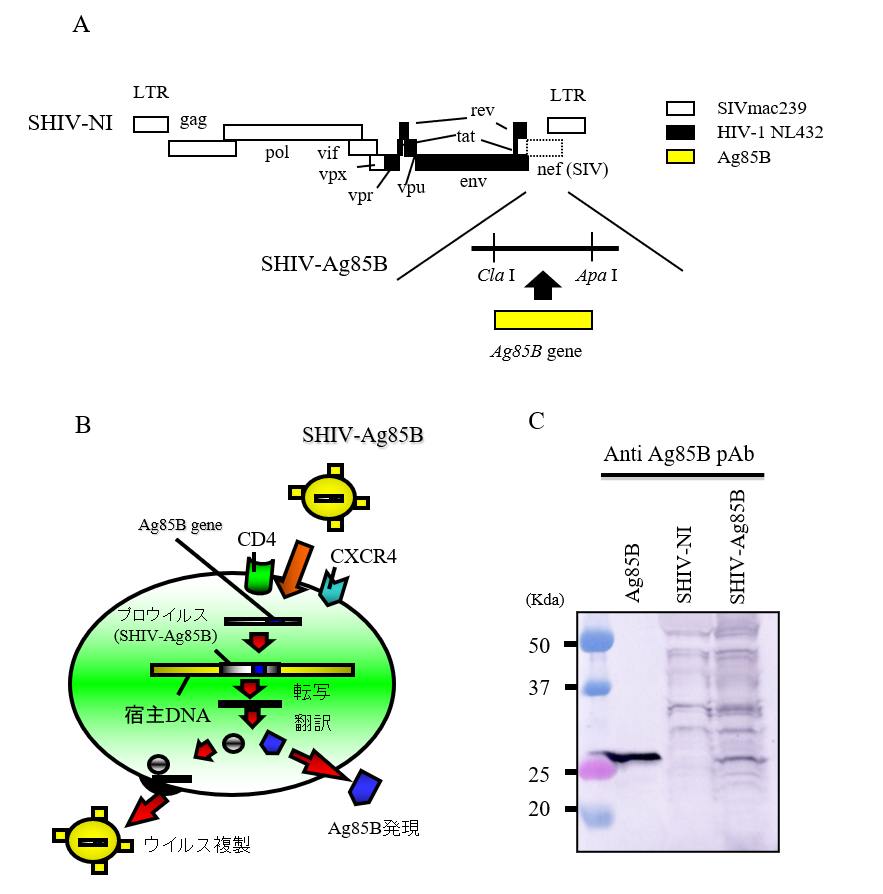
経口ワクチン(トマト)
経口感染をするE型肝炎ウイルス(HEV)のウイルス様中空粒子(Virus Like-Particle:VLP)を用い、VLPの表面に他のウイルス抗原を発現させたキメラVLPワクチン、およびVLP内にDNAワクチンを封入した経口DNAワクチンの研究を行っている。現在、筑波大学と共同研究でVLPそのものやキメラVLPを発現するトマトを作成し食べさせることで、HEVやインフルエンザに対してワクチン効果があるか検討している。
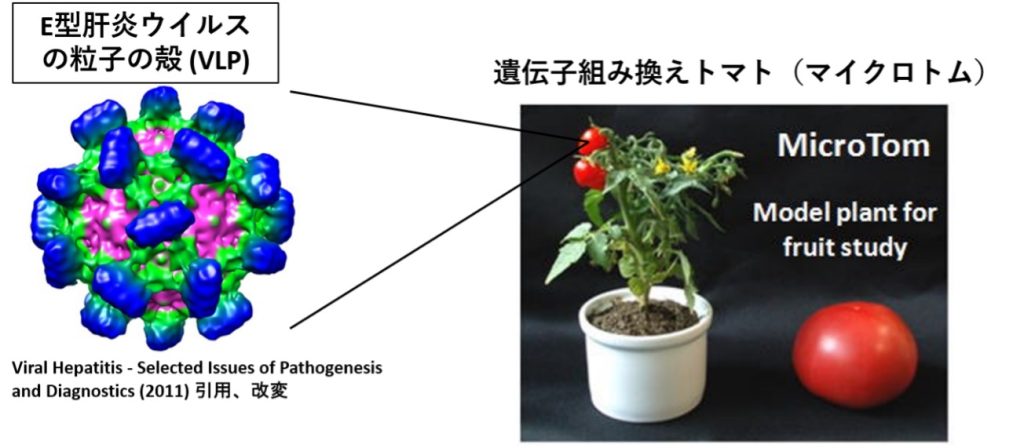
感染症
新型コロナ
我々は、カニクイザルとTgマウスを用いて新型コロナ感染モデルを樹立している。CAG promoted-hACE2マウスを用いた感染モデルでは、SARS-CoV-2に高感受性となり、変異株ごとに異なる病原性を示した。また、中和抗体や抗ウイルス薬の投与は体重減少率や生存率低下の改善を示すことから、現在、新型コロナウイルスに対する中和抗体や医薬品の評価を進めている。
カニクイザルでは、新型コロナ感染後、発熱や肺炎などが観察され、より人に近い新型コロナ感染症モデルを樹立した。現在、様々な変異株を用いて再感染のリスクの検討や、Tgマウスで効果のあったワクチンや医薬品等の評価を進めている。
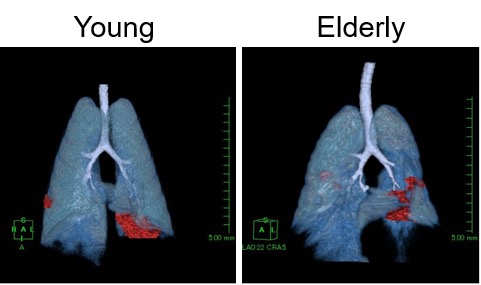
サル痘
サル痘はサル痘ウイルス感染による急性発疹性疾患であり、自然宿主はアフリカに生息するげっ歯類が疑われている。感染症法では4類感染症に位置付けられている。当センターではサル痘に対する予防、治療法に関して、カニクイザルを用いて実験を検討している。
HIV
カニクイザルを含めマカク属のサルは、サル免疫不全ウイルス(SIV)やサルヒト免疫不全ウイルス(SHIV)に感染するとエイズ症候群を引き起こし、エイズの動物モデルとして有用である。このモデルを利用して、新規エイズワクチンや抗HIV治療薬の評価を行っている。
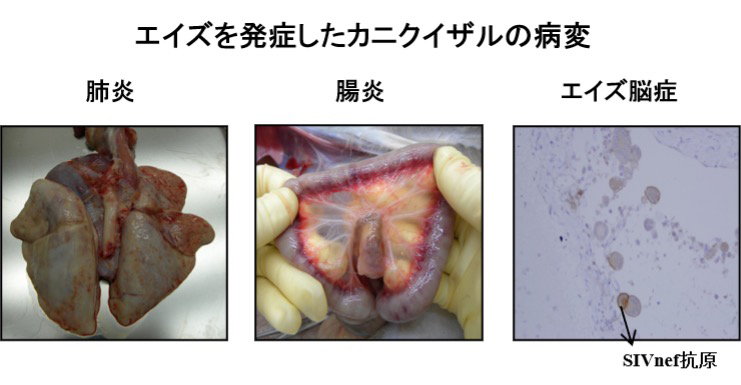
HBV
HBVは宿主特異性が高く、ヒトのHBVはツパイを除いては、ヒトとチンパンジー等の類人猿にしか感染が成立しない。動物福祉の観点からチンパンジーでは動物実験は不可能で、HBVの動物を用いた感染実験の多くはヒト肝臓キメラマウスが利用されているが、機能的な免疫機能が存在しないために治療方法の研究での応用が困難である。これらのことから、我々は実験動物として確立されていないツパイを飼育管理方法、繁殖・育成方法から確立させ、100頭規模のパイロットコロニーを作成し、HBVに高感受性なツパイ系統の樹立を目指している。
HTLV-1
In vitroにおいて高い形質転換能を持つ細胞株を用いることで、HTLV-1感染カニクイザルモデルを確立することに成功した。このモデルを基盤とし、病態解明を目指し、HTLV-1感染病態・感染免疫機能解析を行っている。さらに、予防薬やワクチンの開発に向けた検討を行っている。また、垂直感染サルモデルの検討を進めている。
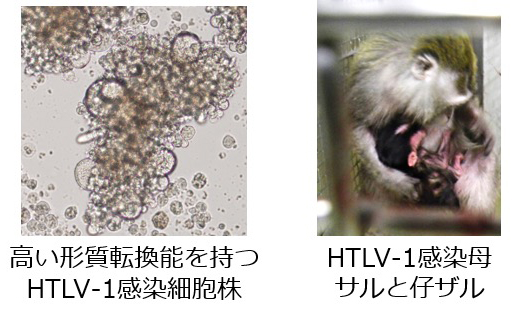
免疫
老齢サル、肥満サル
当センターでは、世界的にも極めて貴重な高齢ザルを維持管理している。また、肥満に伴う代謝性疾患を引き起こすサルも見出されている。そこで、カニクイザルコロニーを用いて加齢・代謝性疾患に伴う免疫機能低下について、主に感染症の側面から解析を行っている。
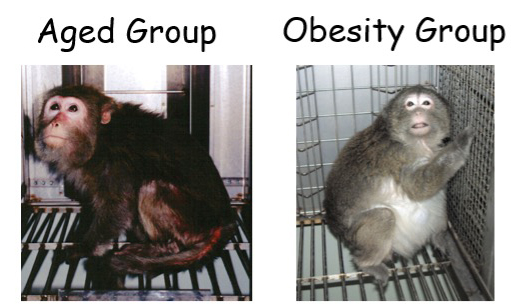
リピドミクス
近年の研究では、感染症により血中の代謝産物(メタボライト)が大きく変動することが明らかになりつつある。我々は、結核感染サルの血漿を用いてメタボローム解析を行い、ワクチン効果と相関する因子の探索や、新規創薬のターゲットの探索を行っており。
